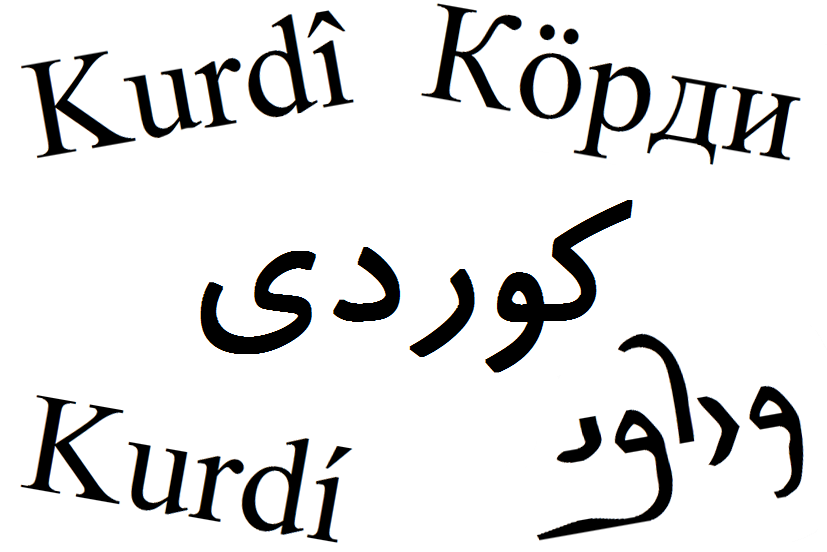Ever since the Kurdish language became divided between the Arabic and Latin scripts, there have been many discussions over which one to settle on. Historically, the Persian alphabet was used for all Kurdish dialects.
Shortly after the independence of Iraq, a new alphabet was created for the Kurdish language. It was essentially just the Persian alphabet, but with the addition of (ڕ), (ڵ), (ۆ), (ڤ), and (ێ). Furthermore, it used (ئ) for glottal stops, (و) for a short “u”, (وو) for a long “u”, and (ـە) for a short “a”. For example, (کردکان) became (کوردەکان). Speakers of Southern Kurdish and Gorani also use (ۊ), representing “ü”. The alphabet is officially used by the Kurds of Iraq and Iran. The Kurds of Syria also use the script, although they officially use Hawar.
In 1931, Celadet Ali Bedirxan announced the Hawar alphabet, based on Latin, with the addition of ê, û, î, ş, and ç. Critics say that the alphabet appears to have been rushed, and failed to produce counterparts for (ڕ), (ح), (ع), (غ). Some Kurds use ḧ and ẍ, representing (ح) and (غ), respectively. Later, the Yekgirtú alphabet was created. Although different from Hawar, it was also based on Latin, with the addition of é, í, ú, and ù.
In the Soviet Union, the Kurds had to adopt the Cyrillic alphabet, basically comprising the Russian alphabet with the addition of һ, Һ, ԛ, ԝ, ӧ, and ә. Cyrillic was never a party in the debate over a united Kurdish alphabet. In 1928, the Soviet Latin alphabet, mostly Latin letters but some Cyrillic, was also used.
The dispute is one of the more mild issues in Kurdish society. Supporters of the Arabic script include traditionalists and Islamists, who argue that Kurds need the script for religious purposes and to be able to read their older documents. Supporters of the Latin script include progressives and secularists, who argue that the Latin script is modern and would bring Kurds closer to the West.
Nationalists are divided, with some supporting Latin because they see the Arabic script as belonging to Arabs, and some supporting the Arabic script because it was nationalised and reformed to specifically fit the Kurdish language. A minority of nationalists want a revival of ancient Kurdish scripts, although they’ve largely been dismissed as unrealistic and overemphasizing on nationalism.

